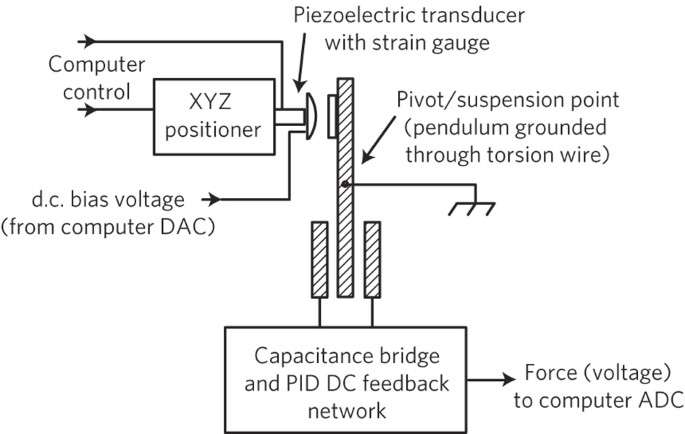Observation of the thermal Casimir force
- Select a language for the TTS:
- UK English Female
- UK English Male
- US English Female
- US English Male
- Australian Female
- Australian Male
- Language selected: (auto detect) - EN

Play all audios:

Quantum theory predicts the existence of the Casimir force between macroscopic bodies, a force arising from the zero-point energy of electromagnetic field modes around them. A thermal
Casimir force, due to thermal rather than quantum fluctuations of the electromagnetic field at finite temperature, was theoretically predicted long ago. Here we report the experimental
observation of the thermal Casimir force between two gold plates. We measured the attractive force between a flat and a spherical plate for separations between 0.7 μm and 7 μm. An
electrostatic force caused by potential patches on the plates’ surfaces is included in the analysis. Previous measurements of the quantum-fluctuation-induced force have been unable to
clearly settle the question of whether the correct low-frequency form of the dielectric constant dispersion for calculating Casimir forces is the Drude model or the plasma model. Our
experimental results are in excellent agreement (reduced χ2 of 1.04) with the Casimir force calculated using the Drude model, including the T=300 K thermal force, which dominates over the
quantum fluctuation-induced force at separations greater than 3 μm. The plasma model result is excluded in the measured separation range.
The authors thank V. Yashchuk for performing the surface roughness measurements, and acknowledge discussions with S. Eckel and F. Intravaia. This work was supported by the DARPA/MTOs Casimir
Effect Enhancement project under SPAWAR Contract No. N66001-09-1-2071.
Department of Physics, Yale University, New Haven, Connecticut 06520-8120, PO Box 208120, USA
Department of Physics, Seattle University, 901 12th Avenue, Seattle, Washington 98122, USA
Theoretical Division MS B213, Los Alamos National Laboratory, Los Alamos, New Mexico 87545, USA
A.O.S. performed data analysis and prepared the manuscript. W.J.K. carried out optical property measurements, theoretical force calculations, and programming for data acquisition. D.A.R.D.
provided theoretical support and calculations. S.K.L. performed data acquisition, programming and calibrations.
Anyone you share the following link with will be able to read this content: